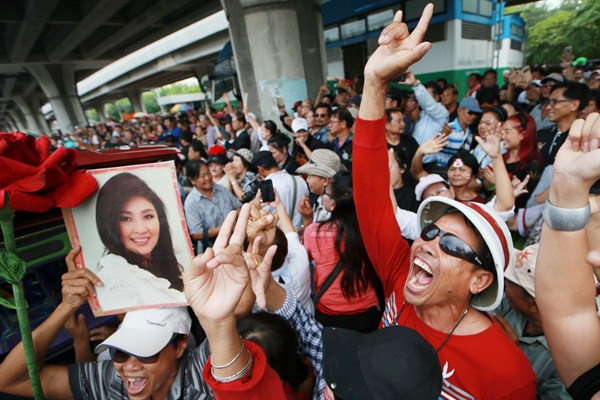Thais waited anxiously throughout the summer for the conclusion of the trial of former Prime Minister Yingluck Shinawatra, who was removed by a military coup in May 2014. The charges Yingluck faced—mismanaging a rice subsidy scheme that wound up losing some $8 billion—were somewhat unusual, since she was not personally accused of corruption in the program. In some ways, she was being charged with making bad decisions in government.
But a central objective of the junta since it took power has been to eradicate the influence of the Shinawatra family in Thai politics by breaking the bond between them and their base of mostly rural supporters. Populist policies, such as the rice subsidy scheme, are key to that bond, having been championed by Yingluck and her brother, former Prime Minister Thaksin Shinawatra, for 17 years now. The charges appeared, in part, like one way to crush Yingluck and her allies.
Yingluck’s supporters expected her to show up in court on Aug. 25 to hear the verdict and accept whatever ruling came down. She had remained in Thailand since the coup. In July, she posted on Facebook, “I’m still strong, and ready to fight to prove my innocence.” Thousands of her supporters trekked to the court in Bangkok to wait for the decision.

